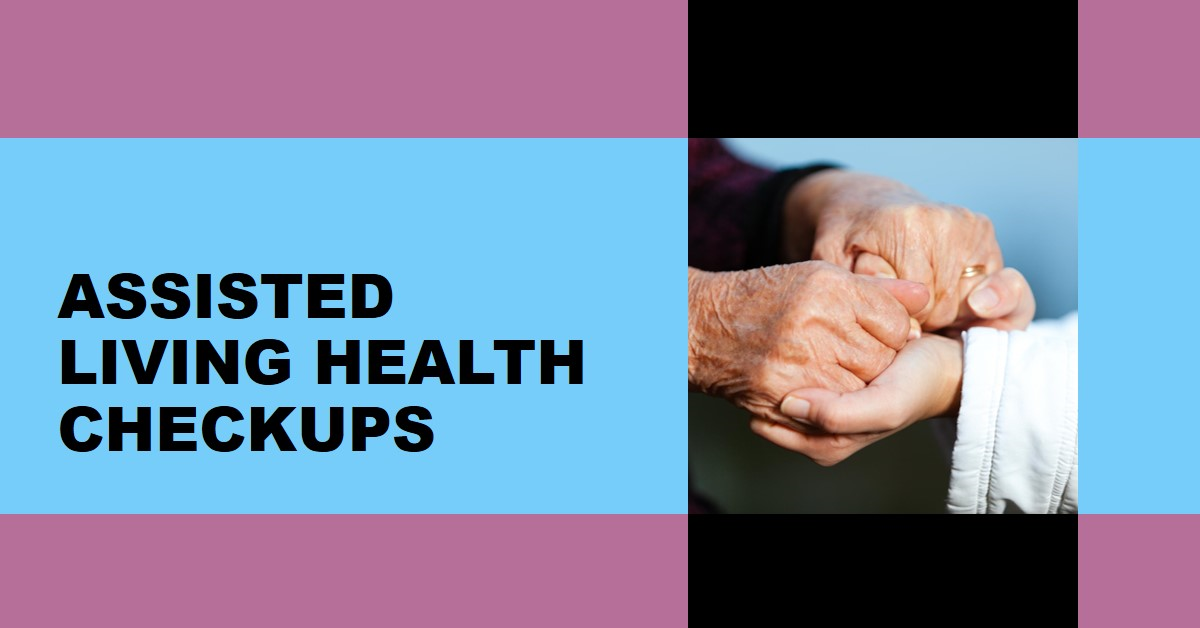For many families, transitioning a loved one to an assisted living or retirement community can be a complex decision. While these facilities offer a supportive environment and essential care services, the responsibility for a loved one’s overall health doesn’t diminish for family members. Regular, comprehensive health checkups remain crucial, and ensuring they happen effectively can be a new challenge for caregivers.
According to a 2020 study by the AARP, over 34 million adults in the US act as unpaid caregivers for an older adult. These caregivers often juggle work, family, and their own well-being while advocating for their loved one’s health needs. In the context of assisted living, this can involve navigating new communication channels, understanding facility protocols, and ensuring a proactive approach to preventive healthcare.
This article provides a guide for family caregivers to navigate comprehensive health checkups for their loved ones residing in assisted living communities.
Understanding the Landscape: Assisted Living and Healthcare
Assisted living facilities provide a range of services, including housekeeping, meal preparation, medication management, and social activities. However, the level of medical care offered can vary depending on the facility. Some communities have on-site nurses or offer limited medical services, while others rely on residents having their own primary care physicians (PCPs) for comprehensive checkups.
It’s crucial for caregivers to understand the specific healthcare model of the assisted living facility their loved one resides in. Here are some key questions to ask:
- Does the facility have on-site medical staff?
- What types of medical services are offered?
- Are residents required to have a PCP for regular checkups?
- How does the facility communicate with residents’ PCPs?
Knowing these details helps create a clear picture of how checkups will be conducted and by whom.
Building a Collaborative Care Team
Effective communication between caregivers, assisted living staff, and the resident’s PCP is vital for ensuring comprehensive health checkups. Here’s how caregivers can build a collaborative team:
- Schedule an Initial Meeting: Request a face-to-face meeting with the assisted living staff to discuss your loved one’s medical history, current medications, and any specific concerns.
- Establish a Communication Plan: Discuss how the facility will communicate healthcare updates, including upcoming checkups, test results, and any changes in medication.
- Coordinate with the PCP: Ensure the PCP is informed about the assisted living staff involved in your loved one’s care.
- Maintain Open Communication: Regularly communicate with both the assisted living facility and the PCP to share any observations you have about your loved one’s health.
By establishing a strong support network, caregivers can ensure a seamless flow of information and a more coordinated approach to health checkups.
Taking a Proactive Approach to Checkups
Beyond establishing a care team, proactive steps can optimize the effectiveness of checkups:
- Review Existing Medical Records: Gather and share your loved one’s medical history with the assisted living staff and PCP.
- Prepare a List of Questions: Before each checkup, create a list of questions and concerns specific to your loved one’s health.
- Advocate for Preventive Care: Discuss age-appropriate screenings and preventive measures with the PCP to identify potential health risks early.
- Schedule Regular Visits: Don’t rely solely on annual checkups. Advocate for more frequent visits if needed, especially if there are existing health conditions.
Leveraging Technology for Improved Care
Advancements in healthcare technology can further enhance communication and care coordination. Consider these options:
- Remote Monitoring Tools: Certain assisted living facilities may utilize wearable devices that track vital signs and activity levels. This data can be shared with PCPs, providing valuable insights into a resident’s overall health.
- Telehealth Appointments: Telehealth platforms allow virtual consultations with PCPs, making it easier for residents to access medical expertise without leaving the facility.
- Online Caregiver Portals: Some assisted living communities offer secure online portals where caregivers can access health updates, medication schedules, and appointment details.
While technology offers convenience, it shouldn’t replace in-person interaction. Regular visits from family members remain crucial for emotional support and observing subtle changes in a loved one’s health.
Additional Considerations for Family Caregivers
- Be Mindful of Communication Preferences: Respect your loved one’s wishes and involve them in discussions about their healthcare as much as possible.
- Advocate for Individualized Care: Generic health plans may not cater to specific needs. Work with the PCP and assisted living staff to tailor care plans based on your loved one’s medical history and current health.
Frequently Asked Questions (FAQs)
1. What if my loved one is hesitant to visit a doctor?
There can be various reasons for this hesitation, such as fear of diagnosis, transportation difficulties, or simply disliking doctor visits. Talk to your loved one calmly and empathetically. Explain the importance of checkups and how they can help maintain good health. You can also discuss alternative options like telehealth appointments or in-home checkups (if offered by the PCP) to make the process more comfortable.
2. How can I ensure my loved one receives the medications they need on time and correctly?
Most assisted living facilities have a system for medication management. Familiarize yourself with the facility’s protocol and ensure clear communication with the staff regarding your loved one’s medication schedule and any potential side effects. You can also inquire about using a medication reminder app or pill organizer for added peace of mind.
3. What if there’s a medical emergency?
Be sure to understand the assisted living facility’s emergency response plan. This might include having emergency contact information readily available and ensuring staff members are trained to handle medical emergencies. Knowing these details can provide a sense of security for both you and your loved one.
4. How can I stay updated on my loved one’s health between checkups?
Regular communication with the assisted living staff is key. Schedule regular calls or meetings to discuss any changes in your loved one’s health, behavior, or mood. Additionally, some facilities may offer online portals where caregivers can access health updates and medication schedules.
5. As a caregiver, how can I manage my own stress and well-being?
Caregiving can be emotionally and physically demanding. Prioritize your own well-being by scheduling time for self-care activities, seeking support from friends and family, and not being afraid to delegate tasks when possible. There are also numerous resources available online and in your community to support caregivers.
Conclusion
Ensuring comprehensive health checkups for loved ones residing in assisted living communities requires a proactive and collaborative approach. By understanding the facility’s healthcare model, building a strong care team, advocating for preventive care, and leveraging technology, family caregivers can play a vital role in safeguarding their loved one’s well-being. Remember, open communication and a commitment to working together with healthcare professionals are essential for navigating this new chapter in your loved one’s life. Have you explored all the options available to ensure your loved one receives the best possible care?
Also know Revolution in Ultrasound: Enhanced Diagnosis & Patient Comfort



